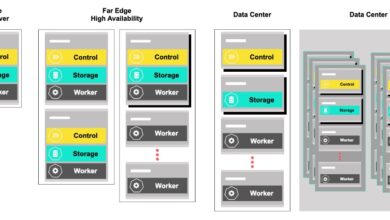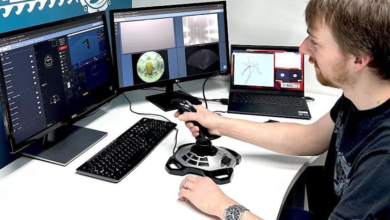9 top data architect and data engineer certifications in 2024

Professional certifications can help people pursuing jobs as data architects and data engineers jump-start or accelerate their careers as well as get a leg up on the competition. These certifications measure a person’s knowledge and skills against vendor and industry benchmarks to show potential employers that the individual has the necessary expertise to be successful and participate in developing and fulfilling enterprise data strategies.
Certifications indicate that current data architects and data engineers are taking a proactive approach to their careers. Because certified professionals are assets to any organization, certifications give enterprises the incentives to retain those employees, typically with promotions or raises.
Following is a list of some of the top data architect and data engineer certifications:
1. IBM Certified Solution Architect — Cloud Pak for Data V4.7
This certification validates that a person can design, plan and build a data and AI tool in a hybrid cloud environment. This certified architect leads and guides the tasks related to implementation and configuration of the tool, which might include data governance, data science, AI and machine learning. Individuals must pass an exam consisting of six sections and a total of 62 questions (41 correct answers are required to pass).
Who should take this course: big data analysts and big data experts.
2. Data Science Council of America (DASCA) Associate Big Data Engineer (ABDE)
This certification confirms that individuals are proficient in using vendor-neutral and cross-platform tools, languages and techniques in engineering as well as in developing big data analytics applications. This certification helps people get into analytics application development, data science and big data engineering. Candidates select one of three tracks that fit their work and education backgrounds. They should understand the basics of programming and have hands-on experience with tools such as Core Java and an understanding of Linux environments and databases.
Who should take this course: software engineers, individuals working in information technology, individuals with bachelor’s degrees in information technology, computer science or software engineering.
3. Google Professional Data Engineer
This certification exam determines whether an individual can design, build, deploy, secure and monitor data processing systems. It also assesses the ability to use, deploy and continuously train existing machine learning models. Each candidate must pass a two-hour exam that includes multiple-select and multiple-choice questions. There are no prerequisites for this exam, but Google recommends at least three years of industry experience, including at least one year designing and managing tools using Google Cloud Platform.
Who should take this course: data scientists, data engineers, data architects, DevOps engineers and machine learning professionals.
4. AWS Certified Data Engineer
This certification confirms an individual’s technical skills and experience with AWS data services. It also serves to test an individual’s abilities with core data concepts such as data ingest, data transformation, data pipeline orchestration and data quality.
To take this exam, an individual should have one to two years of experience with AWS services and two to three years data engineering or data architecture experience. This exam is 130 minutes long and made up of 65 multiple-choice or multiple-response questions.
Who should take this course: data platform engineers, data architects, data scientists and data analysts.
5. Cloudera Certified Professional (CCP) Data Engineer
This certification helps validate an individual’s skills in performing critical tasks in the Cloudera CDH (Cloudera Distribution of Hadoop) environment. The data engineering skills that the examination tests include data ingest, transformation, staging, storage and data analysis workflows. In addition to having hands-on experience in the field, candidates should first take Cloudera’s Spark and Hadoop Developer training course. The exam has a 240-minute time limit in which applicants need to implement solutions in a CDH test cluster to meet certain use case requirements.
Who should take this course: data scientists, data engineers, data analysts and project managers.
6. Microsoft Certified: Azure Data Engineer Associate
An individual pursuing this certification should be a subject matter expert in integrating, converting and consolidating data from unstructured and structured data systems into structures that can be used to build analytics tools. This certification demonstrates that an individual can design, develop, implement, monitor and optimize data storage, data processing and data security and uses various Azure data services and languages to store and produce cleansed and enhanced data sets for analysis. The certification requires substantial knowledge of such data processing languages as Python, SQL or Scala, an understanding of parallel processing and data architecture patterns and passing Exam DP-203: Data Engineering on Microsoft Azure.
Who should take this course: data engineers, data architects, IT professionals, database administrators and business intelligence professionals.
7. Arcitura Certified Big Data Architect (BDSCP)
The Big Data Architect track consists of the several Big Data Science Certified Professional (BDSCP) modules: Fundamental Big Data, Big Data Analysis & Technology Concepts, Fundamental Big Data Architecture, Advanced Big Data Architecture and Big Data Architecture Lab. The last module is a series of lab exercises that require individuals to apply what they’ve learned in the previous courses to fulfill the requirements of the project and solve real-world problems. Earning this certification demonstrates that an individual can design, implement and integrate big data tools on premises or in the cloud. The full examination for the BDSCP is 170 minutes long.
Who should take this course: data scientists, data analysts, data engineers, data managers and IT professionals.
8. SnowPro Advanced: Data Engineer
Snowflake is among the most widely used cloud data platforms, and this certification is designed to test individuals’ knowledge and skills with the platform. Validated skills include an understanding of data pipelines, data transformation and data protection. Applicants should have two or more years’ experience using Snowflake for enterprise data science use cases. The exam has a 115-minute time limit and consists of 65 multiple-choice questions.
Who should take this course: data scientists, data analysts, data engineers, data managers and IT professionals who are building data technology on the Snowflake Data Cloud.
9. Databricks Certified Data Engineer Professional
Databricks is among the pioneers of the concept of the data lakehouse with its open source Delta Lake technology. This certification validates an individual’s knowledge and expertise with data engineering tasks such as Delta Lake use and deployment, and the ability to build data pipelines. An understanding of Apache Spark, as well as use of the Databricks platform for data analytics and machine learning are also key requirements. The exam has a 120-minute time limit and is made up of 60 multiple-choice questions.
Who should take this course: data scientists, data analysts, data engineers, data managers and IT professionals who are building data technology on the Databricks platform.



